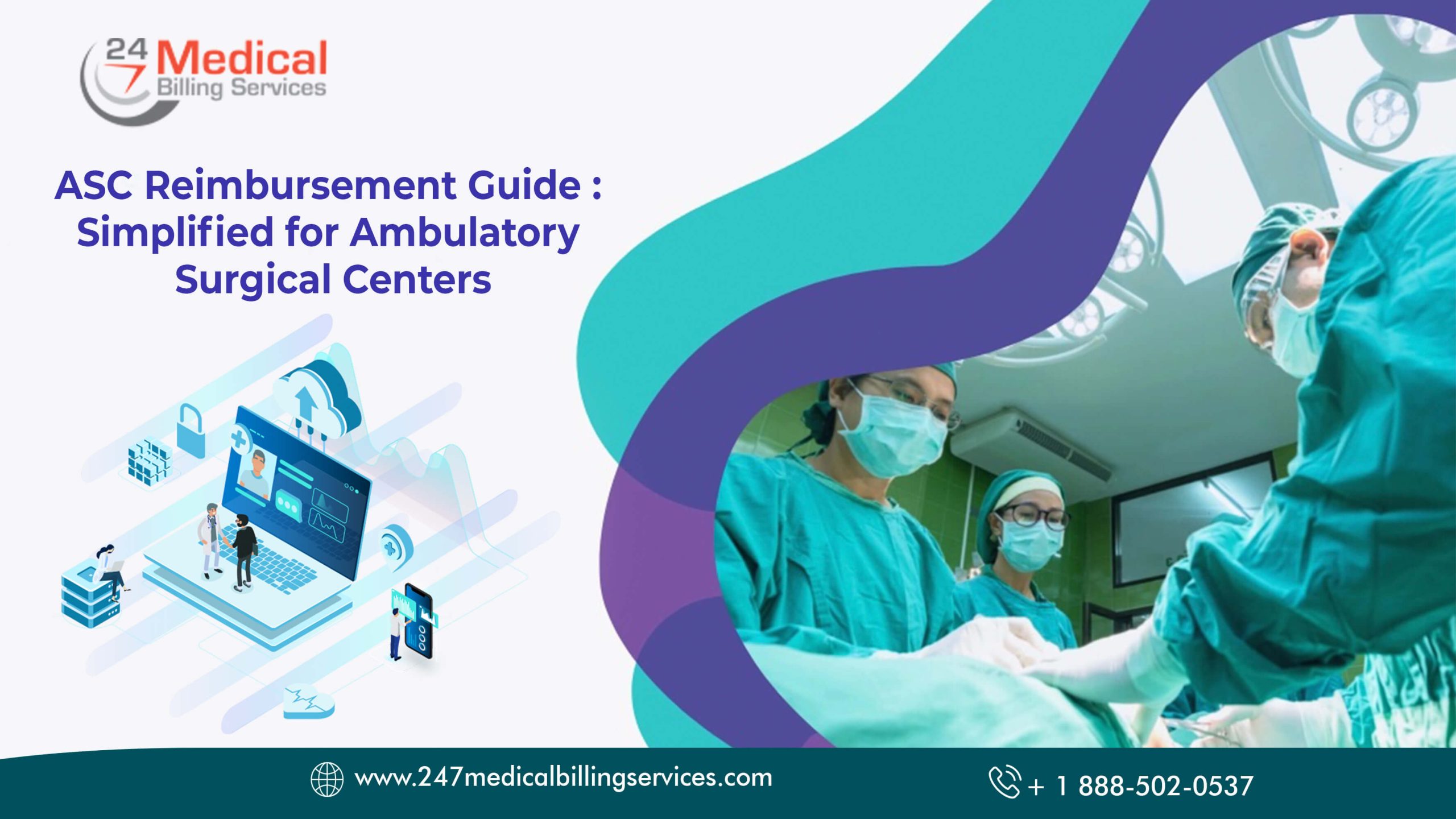
ASC Reimbursement Guide: Simplified for Ambulatory Surgical Centers
Ambulatory billing is an essential component of any outpatient medical facility. It entails filing insurance claims and receiving reimbursements for procedures or services performed in the ASC or doctor's office. Several procedures are involved in adequately submitting claims for ambulatory billing, so that the process can be confusing and time-consuming. It is critical to ensure that all claims are accurate and include all required information to avoid delays in receiving payment.
Knowledge of ambulatory billing processes is critical for the smooth operation of any outpatient healthcare facility and to enhance reimbursements. The ambulatory billing procedure must be simplified for ambulatory surgical centers by including the following steps:
Ways to Enhance ASC Reimbursement
- Create an Effective Insurance Verification Process
Having an insurance verification process mechanism in place at your ambulatory surgical center might help you detect any inactive plans before a patient arrives for treatment. Consider doing batch eligibility checks a week or two ahead of time and creating follow-up processes for patients with no longer active plans.
- Send Patient Estimates to Increase Upfront Collections
If you select a communication channel your patient likes, you can improve upfront collections. This includes investigating solutions for SMS text and email statements and estimates. Reaching patients where they are and improving the patient billing experience increases trust and incredible patient-provider relationships. That means greater payments and revenue for your practice in the end.
- Organize and Double-Check Payer Details
Here are some key payer details and measures to consider while enhancing the ASC reimbursement process:
- Ensure that your provider credentials are correct and up to date. You may be unable to file claims for services provided by a new provider if you have not credentialed them at your center. You may also be denied reimbursement if you submit claims for uncredentialed providers.
- Don't forget to verify your insurance (see above!) and make sure your team always sends claims to the correct insurer. This also applies to patients who have secondary insurance — double-checking which insurance is primary vs. secondary as it is crucial to avoiding claim rejections or denials.
- Confirm whether your claim submission software is linked to the proper payers and payer IDs. Payers who accept electronic claims have a five-digit ID number.
- Make Claim Corrections and Submit Reconsiderations
Create a method for correcting claims and submitting reconsiderations rather than adding to your write-offs. If you make the necessary changes and submit them together with detailed medical notes, the payer may decide to reimburse your claim after all.
Along with your claim repair and reconsideration procedure, ensure that your team understands the importance of collecting accurate evidence for each patient. This includes documentation of every patient encounter, test, treatment, and procedure, as well as any pre-authorization or pre-certifications required before treatment. This documentation can aid in reconsidering your claim and raise the likelihood of full payment.
Outsource Your Difficult ASC Collections
As a community service provider for many years, you may hesitate to consider outsourcing ASC billing and reimbursement. However, keeping an open mind is vital, especially when the effectiveness of your revenue cycle is at stake. Working with a third-party revenue cycle management services provider, such as 24/7 Medical Billing Services, frees your team by delegating more difficult collections to professionals.They will use compassion and empathy to assist your patients in dealing with outstanding bills, such as setting up a payment plan. Your in-house team will no longer bear the weight of disgruntled patients who cannot pay their bills, and your cash flow should increase.
See also: Navigating The Path To Success In Medical Billing: Expert Insights For Physician Practices

.png)